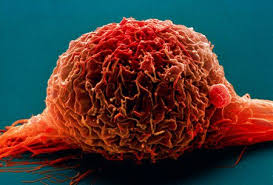Urinary Bladder cancer is enlargement of a part of bladder, where an infected cells multiply and pass throughout the lining of the bladder. Bladder cancer is mostly painless but sometimes painful with frequent urination and blood in urine. Bladder cancer can be invasive and advanced. In invasive bladder cancer, cancer spreads through the bladder muscle layers, where as in advanced bladder cancer, cancer spreads to other part of body from bladder.
 Frequent urination and hematuria are early signs to detect the bladder cancer, although most urinary tract infections are of painful urination, but not in this case. Patients age, health conditions, diet will be considered in predicting the bladder cancer. Urinary Bladder cancer is highly curable with the broad developed treatment ways, which include surgery – removing the infected bladder, cystecomy- removal of partial bladder or cyst infected, which may be severely invasive if not removed. Although the surgery and cystectomy can be followed every time, there are other therapies which include exposing to high dose of x-rays or energy rays for radiation therapy and also chemicals to treat the cancer cells. But chemotherapy, as a medication with chemicals may arise with many of the side effects like irritation and rashes, which may persist for a long time period.
Frequent urination and hematuria are early signs to detect the bladder cancer, although most urinary tract infections are of painful urination, but not in this case. Patients age, health conditions, diet will be considered in predicting the bladder cancer. Urinary Bladder cancer is highly curable with the broad developed treatment ways, which include surgery – removing the infected bladder, cystecomy- removal of partial bladder or cyst infected, which may be severely invasive if not removed. Although the surgery and cystectomy can be followed every time, there are other therapies which include exposing to high dose of x-rays or energy rays for radiation therapy and also chemicals to treat the cancer cells. But chemotherapy, as a medication with chemicals may arise with many of the side effects like irritation and rashes, which may persist for a long time period.
Immunization including mitomycin or with Bacillus-Calmette Guerin (BCG) is proved to be highly effective among the natural defensing agents against any bladder cancer. But along with the pro’s, BCG also has a con i.e., it may produce long lasting irritation as a side effect. Bladder cancer can be prevented by taking proper medication, or by following control measures, such as drinking plenty of fluids and water, avoid smoking, and having lots of fresh fruits and vegetables etc., can help preventing urinary bladder diseases.
